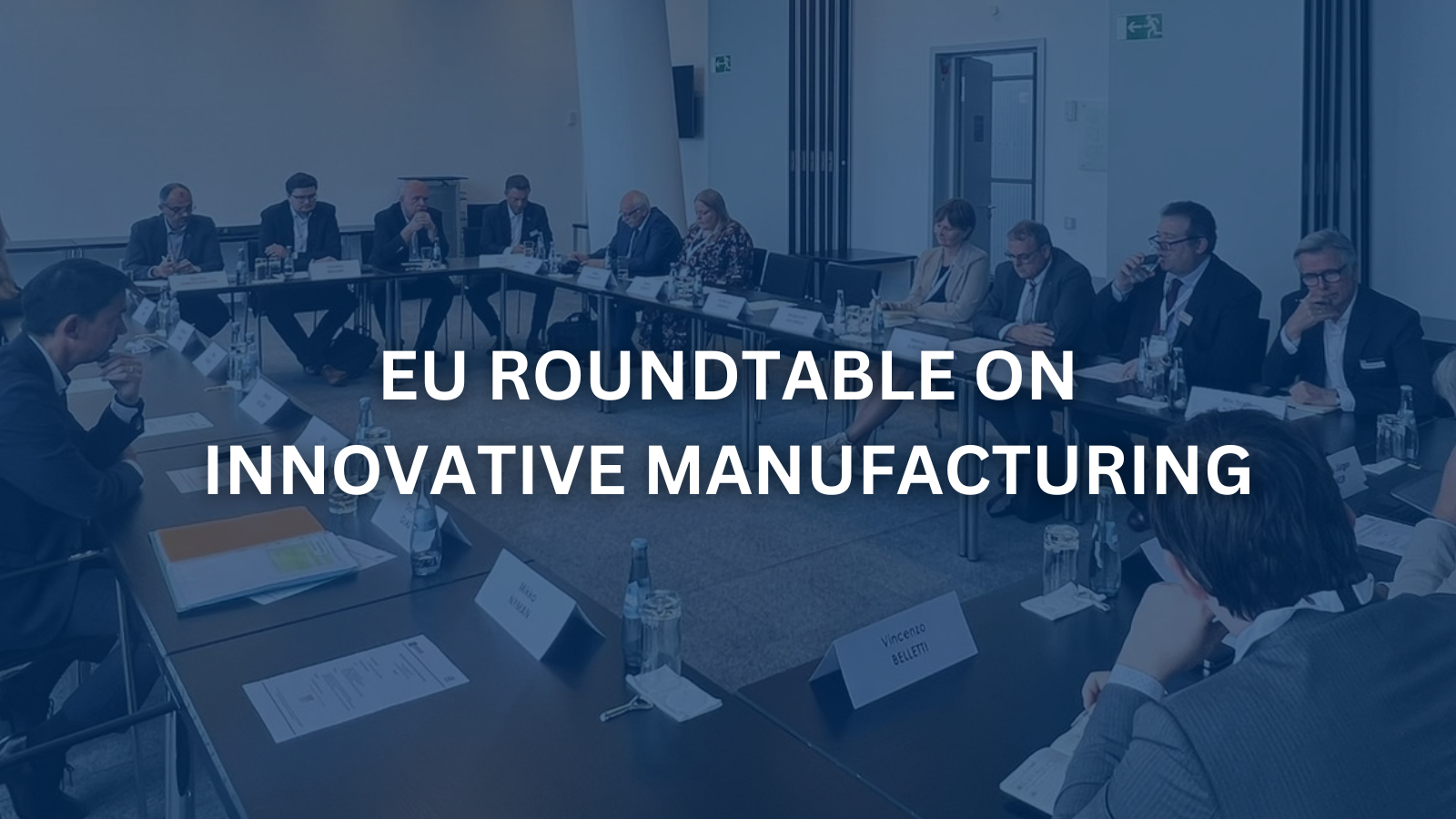EU Roundtable on Innovative Manufacturing – Key Takeaways

In line with the theme of this year's EMO Hannover 2023, CECIMO today hosted a roundtable discussion on the topic of Innovative Manufacturing. The event brought together policy makers and industry representatives for a productive discussion on how to ensure that legislation doesn’t hamper innovation, especially for small and medium enterprises (SMEs). The European manufacturing sector is a vital component of the economy, encompassing a diverse range of industries and businesses. This event shed light on several key areas that are crucial to propelling European manufacturing into the digital age, while maintaining safety and competitiveness.
The most discussed topic of the roundtable was the proposal to restrict PFAS. Participants emphasised that industry supports the objective of preventing emissions of hazardous substances into the environment. However, the proposed PFAS ban raises several issues, such as not recognising the difference between B2B and B2C use of PFAS, which could threaten the competitiveness of the manufacturing industry in Europe.
Another central concern raised at discussion was the regulatory burden faced by SMEs in the manufacturing sector. The rapid pace of technological advancements and legislative changes has made it increasingly challenging for these smaller businesses to keep up. While robust collaboration between industry players is essential, finding manageable ways to deal with legislative changes remains a top priority. A key theme shared during the round table discussions was that innovation and regulation are not opposing forces, but rather complementary ones. This approach encourages the development of innovative technologies while ensuring safety and adherence to regulatory standards.
Digitalisation and data sharing also emerged as key themes during the roundtable discussions. The manufacturing industry recognises that harnessing digital technologies and sharing data can lead to sustainable practices and economic opportunities. However, implementing these changes needs adaptation from all companies, including SMEs. The importance of setting standards for data sharing and ensuring the safety of digital systems was also highlighted.
Data spaces and digital innovation hubs were also discussed during the event. All participants agreed that by fostering a robust ecosystem of data spaces and digital innovation hubs, we can empower our manufacturing sector to thrive in the era of digitalization, ensuring that European industry remains competitive, sustainable, and at the forefront of technological advancements. Questions were raised about how data sharing can become attractive not only for the big players, but also for smaller companies in the field of manufacturing. The promotion of use cases to highlight the benefits of this concept was proposed by industry representatives, which stirred a productive discussion in this sense.
Industry leaders emphasised the need for forward-looking regulation that promotes the competitiveness of our industry, allowing it to thrive on the global stage while avoiding additional burdens.
To conclude, today’s roundtable was a success, and we would like to thank all the participants and our speakers:
- Christian Bölling, Managing Director, EIT Manufacturing Central
- Malgorzata Nikowska, Head of Unit for Digital Transformation of Industrial Ecosystem, Directorate-General for Communications Networks, Content and Technology (DG CONNECT), European Commission
- Mehdi Hocine, Head of Unit of the Machinery and Equipment unit, Directorate General for Internal Market, Industry, Entrepreneurship and SMEs (DG GROW), European Commission
